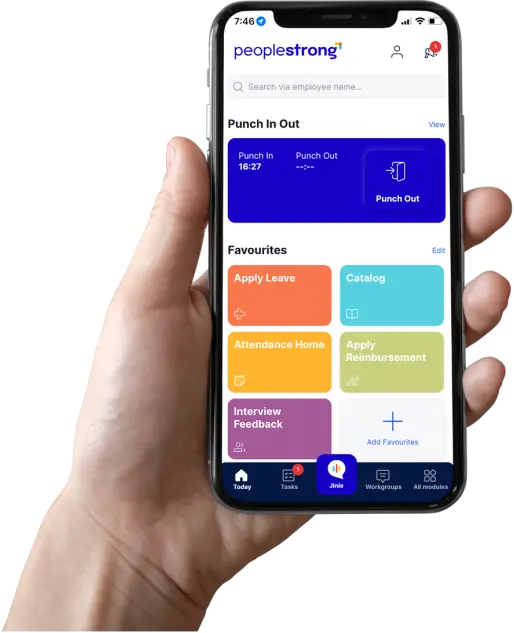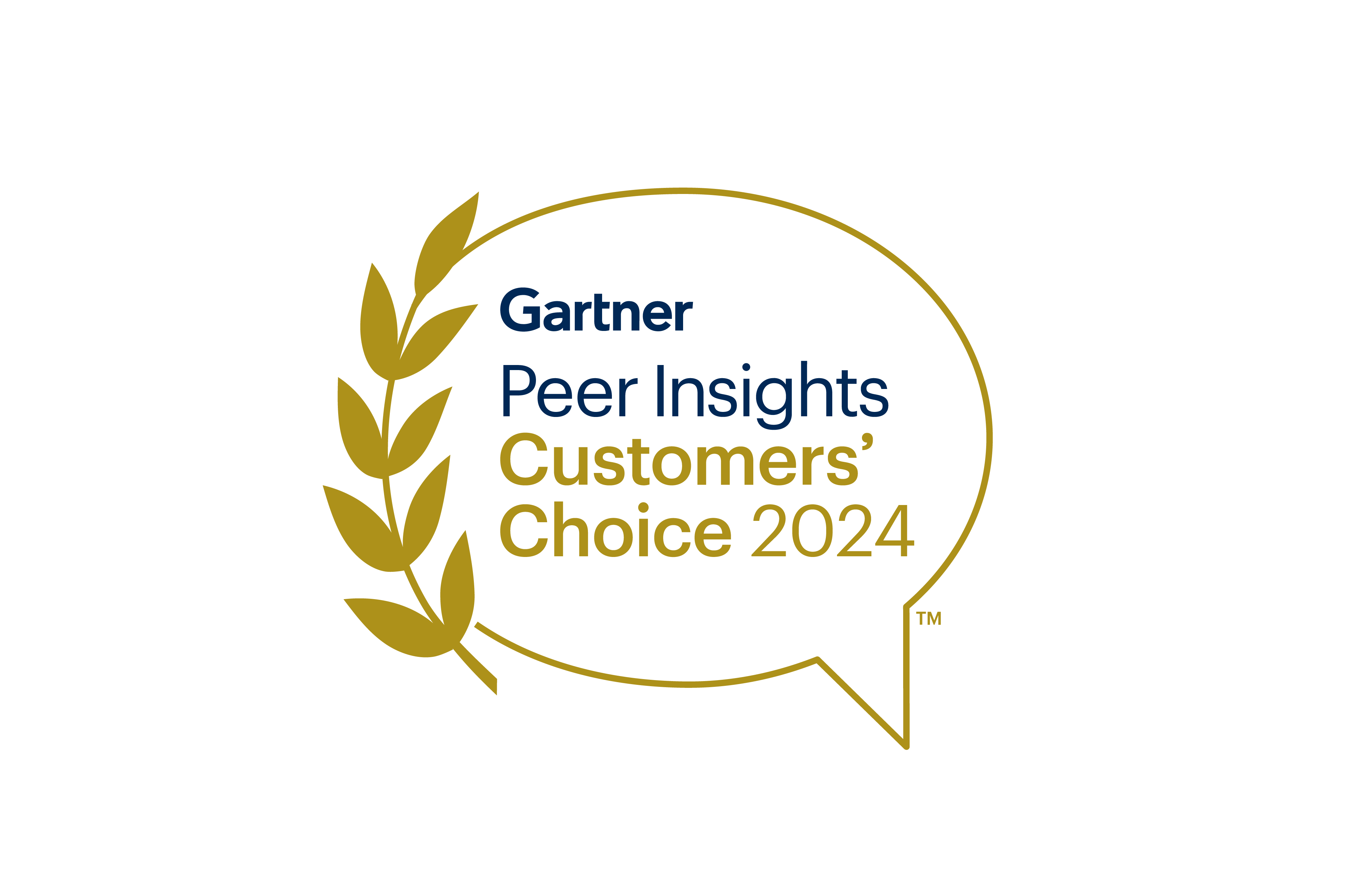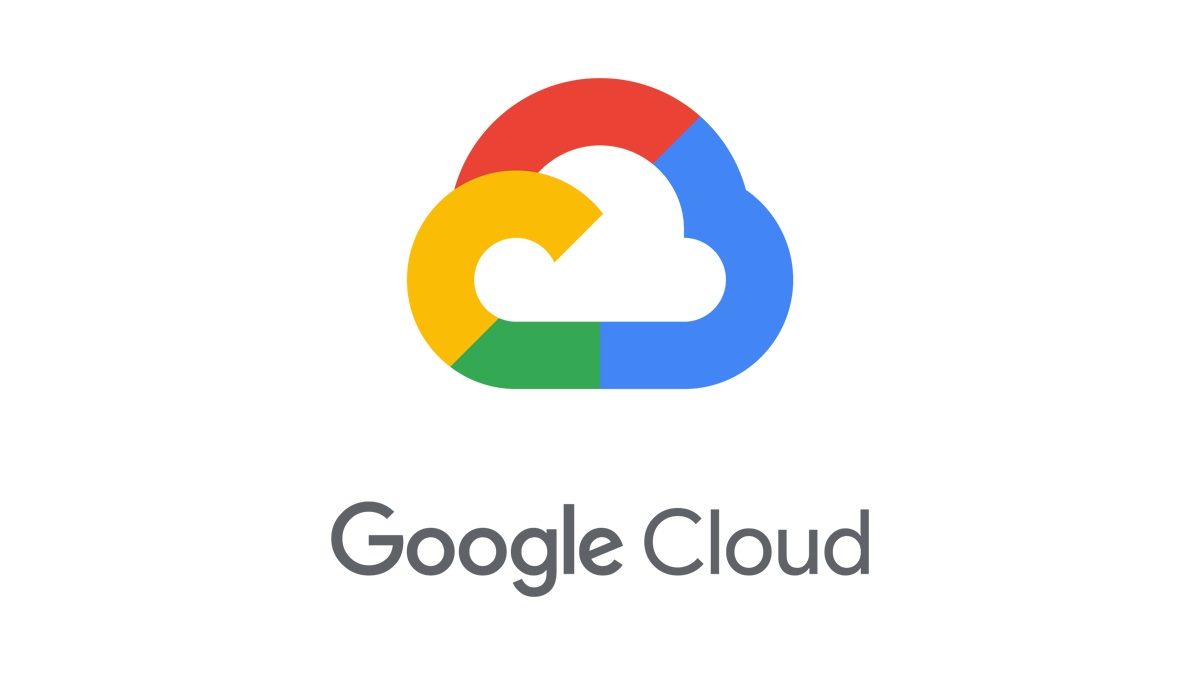If you still consider performance management as the process of conducting performance reviews every year, it is now time to expand your horizons. Imagine changing those periodic updates into a dynamic, ongoing conversation about employee performance. This shift from once-a-year meetings to continuous dialogue not only clarifies goals, expectations, and feedback but also paves a clear road to success for everyone involved. This is why over 81% of HR leaders are changing their organization’s performance management system.
This blog navigates the application of performance management principles, addressing unique regional and industry challenges. Let’s explore this guide to learn more about the critical aspects of performance management and learn about leveraging this methodology to achieve success for your company.
Decoding Performance Management: A Comprehensive Guide
Performance management is like a guide for an organization that enables every individual to evaluate and enhance their efficiency. This approach also contributes to the overall success of the company. The performance management process begins with the definition of SMART (specific, measurable, achievable, relevant, and time-bound) objectives to provide a clear direction to channel employee efforts. It is followed by a regular assessment of employee productivity compared with these objectives.
A robust feedback framework is crucial here as it delivers constructive and ongoing suggestions related to areas for improvement. In addition, a well-defined performance management system encourages employees to enhance their skill set for professional development and to meet the enterprise’s present and future needs.
Suggested Read:
Performance Management Process: A Guide for HR Professionals
Traditional vs. Modern Performance Management
Historically, performance management has been understood as the process of conducting annual performance reviews. However, modern practices advocate for a continuous and holistic approach that focuses on ongoing development and real-time feedback. Here is a comparative analysis for your perusal:
| Aspect | Traditional Approach | Modern Approach |
|---|---|---|
| Frequency | Annual reviews are conducted once a year. | Feedback is provided continuously and in real-time. |
| Focus | The focus is on evaluating past performance. | The focus is on ongoing development and achieving future objectives. |
| Feedback | Feedback is typically top-down and provided once a year. | Feedback is regular and comes from multiple sources, including 360-degree reviews. |
| Goal Setting | Goals are fixed annually and rarely adjusted. | Objectives are dynamic and adaptable, allowing for adjustments as needed. |
| Employee Involvement | Employee involvement in the performance management process is minimal. | There is a high degree of employee involvement, emphasizing self-assessment and active participation. |
| Adaptability to Change | The approach has low adaptability to change, with rigid structures in place. | High adaptability to change, with flexible processes that can quickly respond to new challenges. |
Notably, over 33% of employees show a preference for this regular feedback over the conventional review system.
The shift towards a modern performance management system highlights the importance of a continuous and comprehensive approach in a rapidly changing tech environment. This model integrates feedback and growth into everyday practices, pinpointing team strengths and improvement areas for focused training efforts.
Performance Management Today: Trends, Insights, and Outlook
Performance management is experiencing a transformation in the modern era. It is now evolving into newer models that are driven by ongoing feedback.
As per studies, only 2% of companies have complete confidence in their existing performance management systems. On top of that, merely 27% of HR professionals are of the opinion that their leaders have the necessary performance management experience. This gap in the skillset of managers does not hold well for any enterprise in the long run.
To address these issues, businesses are looking forward to integrating highly engaging and effective performance management methods. The popular solutions here include the creation of real-time feedback systems and the promotion of a continuous development culture. Through this approach, companies are aiming to ensure employee satisfaction and boost their productivity at the same time.
This evolution in performance management has helped bring down the number of companies conducting annual reviews from 50% in 2022 to 39% in 2023. This transition bodes well and is expected to lead towards a future where workplaces and workforce expectations are in perfect sync.
The Critical Role of Performance Management in Modern Businesses?
Performance management is playing a crucial role in improving the work culture across modern businesses. It is helping companies achieve their strategic goals through ongoing improvement in employee performance. By attaining this balance, enterprises are in a better position to establish a competitive advantage in the marketplace. Let’s have a look at the different aspects of this development:
- Boosting Employee Engagement: Performance management is crucial to develop a culture of ongoing feedback in an enterprise. By clearly conveying the objectives to employees, you can make them feel valued and thus improve their commitment to the company.
- Employee Growth: Performance management is a constant process that identifies the opportunities for skill development of employees. As it helps with the professional growth of individuals, in 2023, 35% of companies opted for performance reviews every quarter, compared to 22% in 2022
- Open Communication: Transparency in communication is one of the driving forces behind performance management. This openness creates trust and helps define the expectations for employees as well as the management.
- Employee Retention: Performance management also plays a vital role in retaining key personnel. This goal is achieved by offering employees clarity about their future within the organization. This clarity is useful in boosting their commitment to the company’s overall goals.
Suggested Read:
Complete Guide to Employee Retention in a Volatile Labor Market
Navigating the Performance Management Journey: Strategies and Processes
Performance management is a comprehensive strategy used by companies to boost employee productivity. It also helps ensure perfect alignment between employee goals and company objectives. Let’s have a closer look at the different components of this strategy:
1. Setting Goals: It is an important step for creating a strong performance management framework. You need to define SMART goals for each employee. This will help them know what is expected and how they can contribute to the enterprise. In fact, research indicates that alignment between company and individual goals can ensure up to 94% objectivity in those goals.
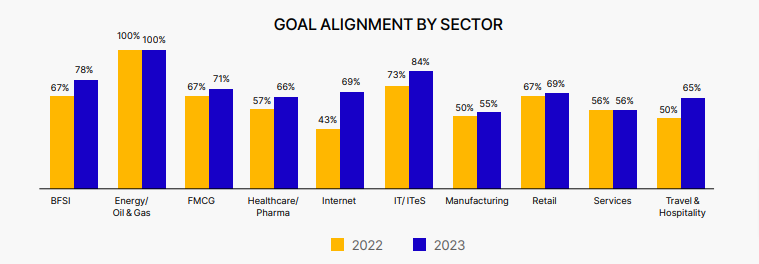
2. Performance Planning: To achieve the specified goals, you need to create a detailed plan. This strategy must give details of the resources and training required by employees to achieve the objectives. This will help set the stage to channel their efforts during the given period. Goal Alignment Across Sectors: 2022 vs 2023
3. Performance Monitoring: You must continuously observe employees’ work to measure their professional performance. This constant checking allows you to make changes when needed to ensure your goals are being met.
4. Performance Review: It is a great way to check how well your employees are doing. You can complete this review every three or six months, depending on the company rules. This will let you assess what they have done well and what they need to work on.
5. Feedback and Training: To develop your employees’ skills, you must communicate with them regularly and give them helpful feedback to help them know what they’re good at and what they need to work on. This will help you guide your employees to do better.
6. Performance Appraisal: It is another crucial element of the performance management process. In this step, you need to check and write down carefully how each employee is doing. This review will be very important when deciding about promotions, raises, bonuses, or other opportunities.
Elevating Employee Performance: Proven Strategies and Best Practices
Let’s have a look at some proven strategies and best practices to improve the performance of your employees effectively.
1. Create a Culture of Continuous Feedback: You must move from the yearly reviews to a system of ongoing feedback. This change supports immediate growth and learning, making employees feel appreciated and driven to get better. A workplace offering continuous feedback improves engagement and allows employees to take responsibility for their work. This results in a committed team that is motivated to give its best effort to achieve the company’s goals.
2. Leverage Technology to Enhance Performance Insights: Use the latest HR tech tools to keep track of employee performance and give useful insights. Platforms like PeopleStrong give you an all-in-one solution to make performance reviews and development planning smooth. This will help you leverage clear insights to manage employee performance quickly and effectively.
Suggested Read:
9 Best Performance Management Software In India
3. Encourage Employee Autonomy through Personalized Goals: Match your employees’ goals with their career dreams and the company’s targets. Personal goals that mean something acts as a motivation for employees, which can increase their engagement and performance. This way, not only will individual efforts help the company succeed, but it also makes employees happier and more loyal.
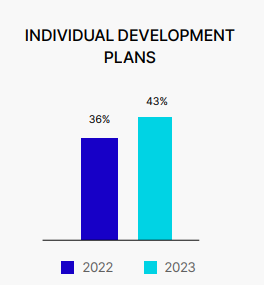
4. Invest in Employee Development and Growth Opportunities: Ongoing learning and development programs are key for both the growth of the employee and the success of the company.
In fact, compared to 36% in 2022, 43% of companies now include Individual Development Plans (IDPs) in their performance reviews.
Making these programs fit the specific needs of employees, and the goals of the company can lead to better performance. It will also help ensure that more employees stay with the company and are happy with their work. Investing in employees’ growth makes sure that you have a strong group of talented people and leaders for the future.
5. Promote a Holistic Approach to Employee Well-being: You need to understand that the well-being of your employees is crucial for their performance. You need to take actions that help their mental, physical, and emotional health. Develop plans that think about their overall well-being to create a sense of belonging and thus ensure a productive team.
6. Implementing Objectives and Key Results (OKRs): OKRs provide a well-defined way to set goals and track performance. They also help with matching the goals of individuals, teams, and the company. OKRs make things clear, help everyone work towards the same thing, and increase engagement. By using OKRs, you can improve your performance management process, helping both employees and the company succeed. For a full understanding of how OKRs can be used in your performance management strategy, check out our detailed guide ‘The Ultimate Guide to OKRs’.
Overcoming Obstacles: Addressing the Challenges in Performance Management
Companies often face common problems when dealing with performance management. These include things like unclear communication, not enough feedback, and employees not being engaged. Let’s look at these problems and the best ways to solve them:
- Clear Communication: It is crucial always to have open communication. You can achieve this through regular meetings, clear instructions about expectations, and easy options for employees to ask questions and get answers.
- Effective Feedback: Having a well-defined system for feedback is also important. It must give timely, helpful, and actionable feedback that can greatly improve performance. This would require you to teach the managers about how to give good feedback and also ensure that the feedback goes both ways.
- Boosting Employee Engagement: You can increase employee engagement by making sure individual goals match the company’s goals. You should also recognize and reward good work along with chances for growth and development.
Maximizing Employee Potential: Performance Management Success Stories from Leading Brands
Case studies can help you better understand the transformative power of effective performance management strategies in achieving business objectives and enhancing employee engagement and satisfaction. Let’s have a look at some interesting examples here:

FlyDubai partnered with PeopleStrong to enhance HR operations. By integrating an AI-driven Talent Operating Suite, FlyDubai improved objective setting and review transparency, achieving an impressive 80% completion rate of department-specific objectives within just three days. The introduction of a ‘Dynamic Review Form’ further promoted an open review process by providing real-time updates on managers’ ratings.
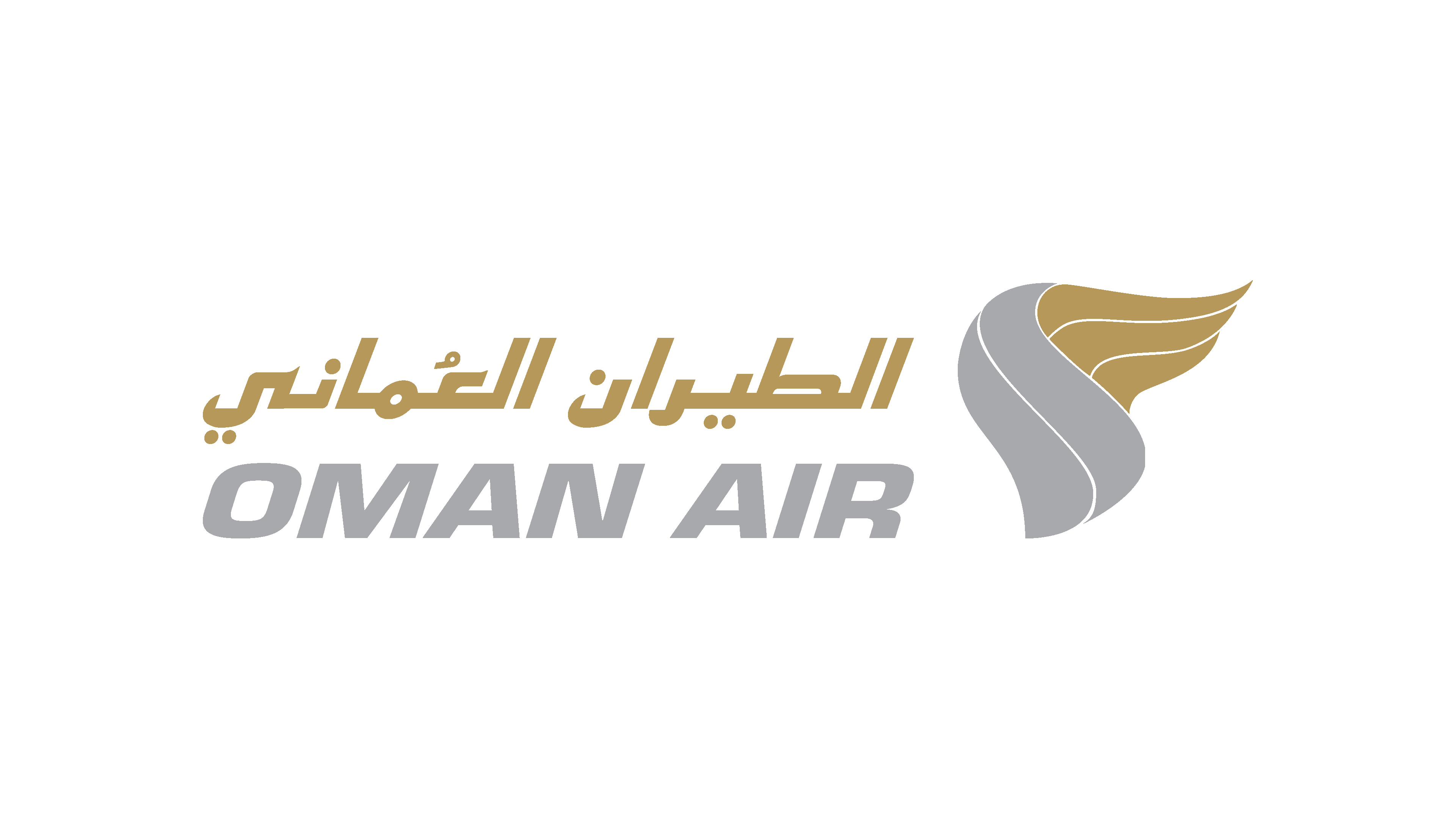
Oman Air, the Sultanate of Oman’s national carrier, revolutionized its performance management by collaborating with PeopleStrong. The launch of ‘High Fly,’ a DIY performance management platform, streamlined the selection of KPIs and progress updates for employees while introducing an auto-rating mechanism for managers. This innovation not only eliminated bias but also ensured evaluations were fair and aligned with the company’s vision.

Confronted with challenges emerging from rapid expansion, Hanu sought PeopleStrong’s expertise to overhaul its performance evaluation system. The introduction of ‘Performance management module’ enabled the seamless integration of OKRs, real-time performance tracking, and quarterly reviews. This strategic move led to a 6% increase in Hanu’s bottom line and a notable surge in employee engagement, underscoring the effectiveness of aligning performance management with organizational goals.
The Future of Performance Management: Innovations and Evolutions
The realm of performance management is rapidly evolving, incorporating technological advancements and changing philosophies to meet the needs of modern workforces better. Here’s a closer look at what’s new and noteworthy:
Technological Advancements: The usage of AI and analytics in performance management systems is changing the way companies evaluate and improve employee performance. By 2024, 75% of organizations will shift from pilot to operationalizing AI, driving a 5x increase in streaming data and analytics infrastructures. In the HR domain, this means using AI-powered performance management systems. These systems will provide real-time insights and predict future trends to decision-makers. This transformation can greatly improve the decision-making processes.
Continuous Feedback and Agile Management: Leaders are encouraging real-time communication between managers and employees throughout the year, replacing traditional yearly reviews. This shift towards a continuous feedback loop fosters a culture of open communication and employee development, allowing for immediate adjustments and fostering a dynamic work environment.
Studies show that over 35% of companies now like to do performance reviews every three months, up from 22% last year. On the other hand, the number of companies doing yearly reviews has gone down from 50% last year to 39% this year.
This shows that companies are moving towards checking in more often and giving helpful feedback to make employees stronger.
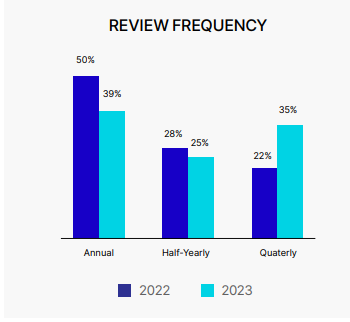
Several industries have seen an increase in how often they do performance reviews. Travel and Hospitality (75%), IT/ITeS (64%), and BFSI (51%) are the main industries driving this new trend, while Retail (12%) and FMCG (16%) are still getting there. Studies show that 82% of companies think that managing performance should be less about checking employees and more about helping them grow. This way supports growth and development in real-time, leading to a more productive and engaged team.

Emerging Trends: Several emerging trends are shaping the future of performance management. One significant trend is the focus on employee well-being and mental health, recognizing their impact on performance. Performance management is evolving with a shift towards dynamic, inclusive, and strategic approaches. One of the crucial trends includes an increased focus on employee well-being. Another important trend is the sharing of feedback through peer reviews and self-assessments, which helps create a culture of ongoing feedback.

In the wake of these trends, Objectives and Key Results (OKRs) are coming up as a robust framework to define company goals, leading to better adaptability and agility. Currently, 37% of companies are pursuing collaborative goals with their team members, with the adoption of OKRs rising to 52% among enterprise customers, up from 32% last year.
Personalization and Employee Engagement: Personalizing performance management is key to fostering engagement and unlocking employees’ potential. High engagement levels are linked to increased profitability, emphasizing the need to align individual goals with organizational objectives and providing personalized feedback.
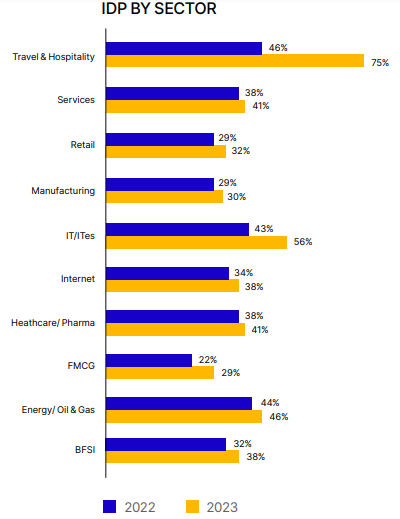
Due to increasing competition in the business world, companies are investing in Individual Development Plans (IDPs). This helps ensure that the employees are prepared for every opportunity. Research shows that more companies are including IDPs in their performance reviews. Now, 43% of companies do this, up from 36% last year.
Generative AI and Performance Management: The use of Generative AI (Gen AI) in performance management is becoming a game-changing trend. It’s changing the way companies set goals and check performance. PeopleStrong’s recent launch of interactive demos featuring Gen AI illustrates this advancement, demonstrating the platform’s capability to streamline the OKR-setting process. By leveraging Gen AI, PeopleStrong helps users generate tailored OKRs based on past performance, current company objectives, and team alignment.
Securing Future Success: Harnessing the Power of Performance Management
Using good performance management practices and tools is very important for your company’s success and the growth of your employees. We’ve talked about how using technology, like AI and analytics, can give you a deeper understanding of how your employees are doing. We’ve also discussed the move towards giving feedback more often and flexible performance management to create a culture of growth and adaptability.
PeopleStrong’s performance management system stands out by offering these benefits and more, ensuring your enterprise can align people to outcomes efficiently. Some of the standout features include simplified goals, OKRs, continuous feedback, and comprehensive performance dashboards. Discover how PeopleStrong can transform your performance management process and unlock the full potential of your workforce.
Unlock the full potential of your performance management process with PeopleStrong's revolutionary solutions. Our team of experts is dedicated to helping you create a culture of continuous feedback and development, ensuring your organization stays ahead of the competition. Contact us today and discover how PeopleStrong can transform your performance management process into a more efficient, effective, and rewarding experience.
Contact Us Now


